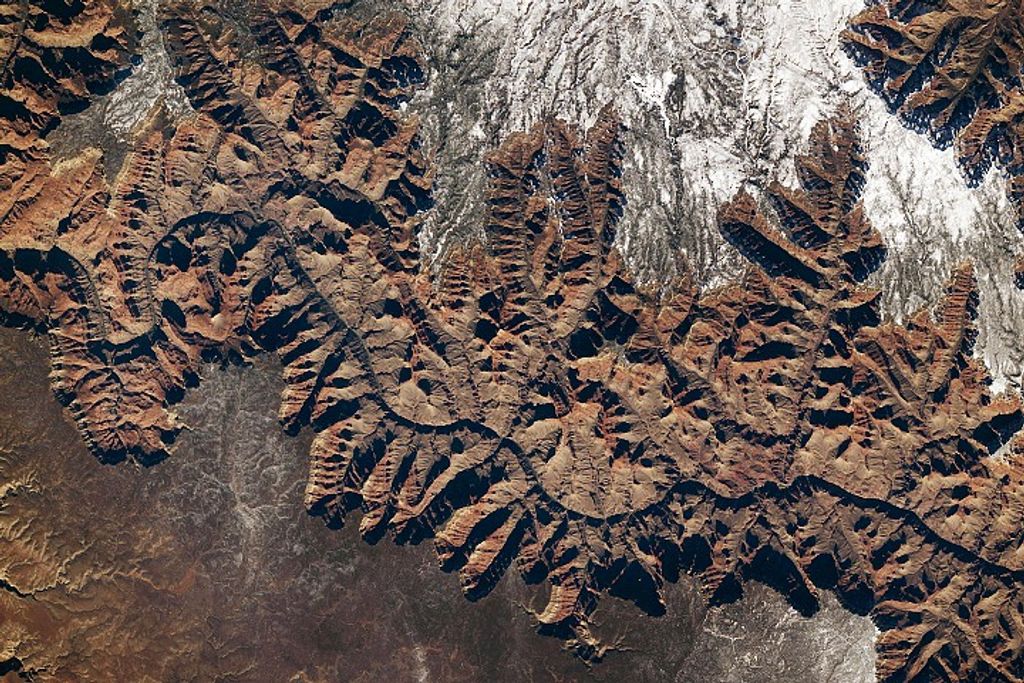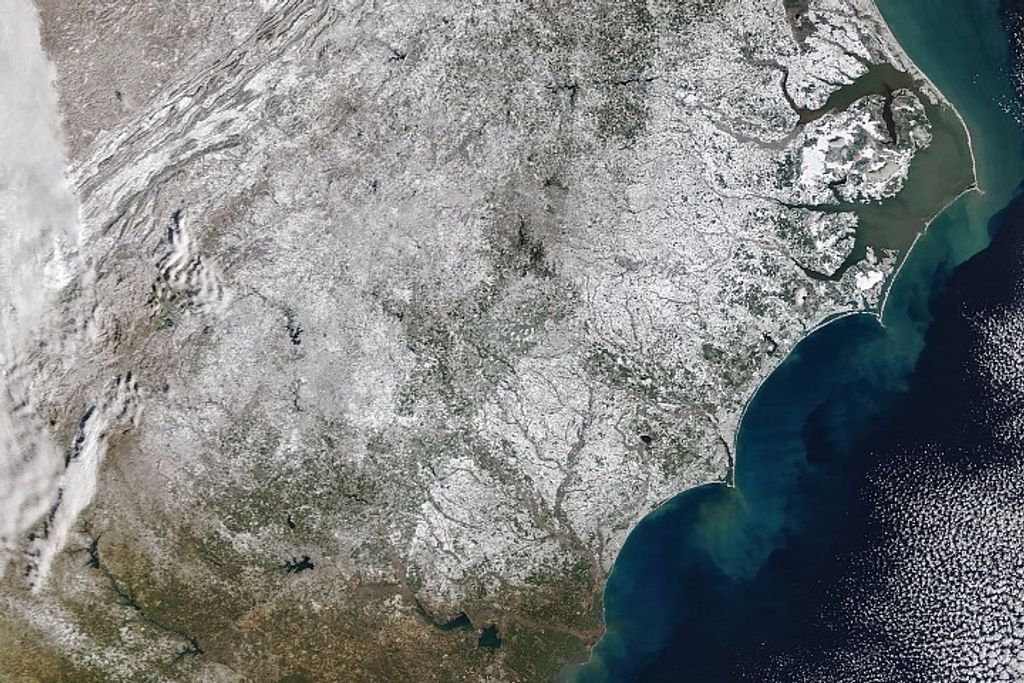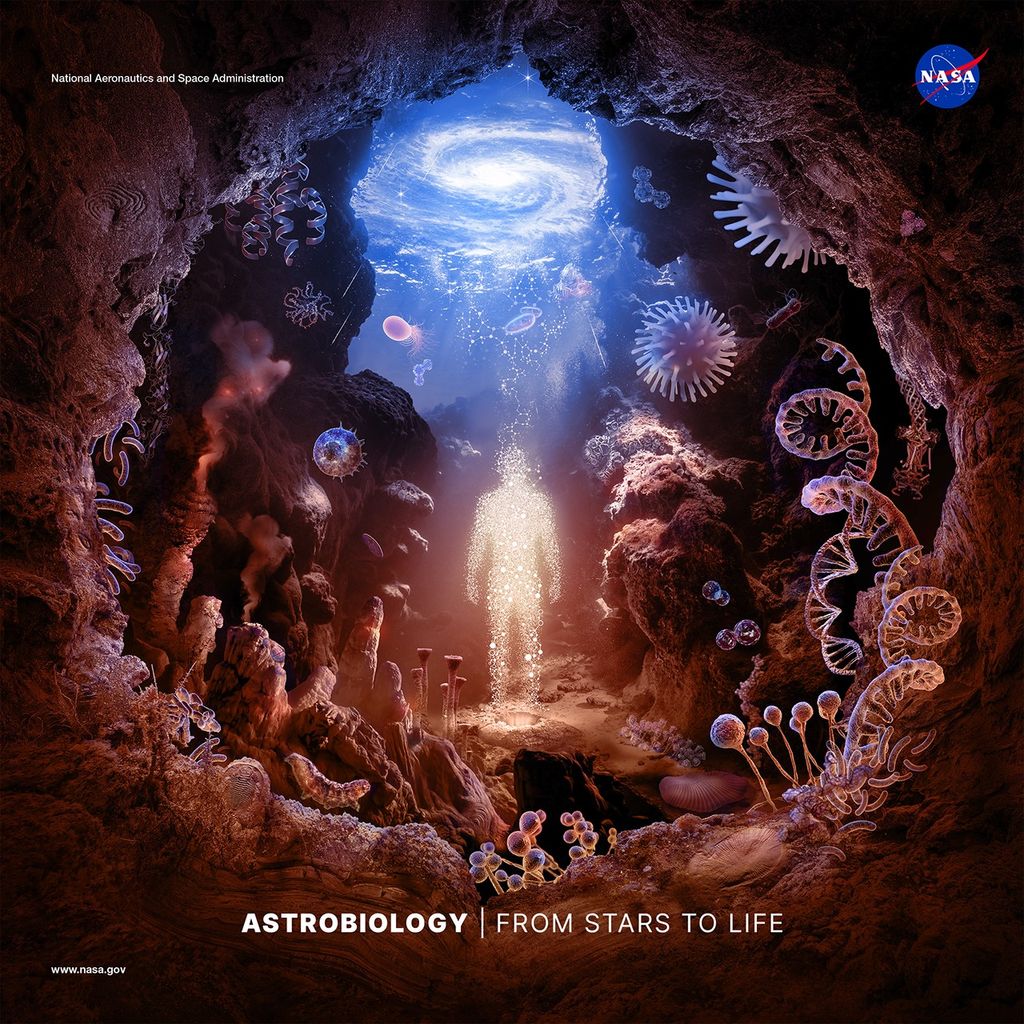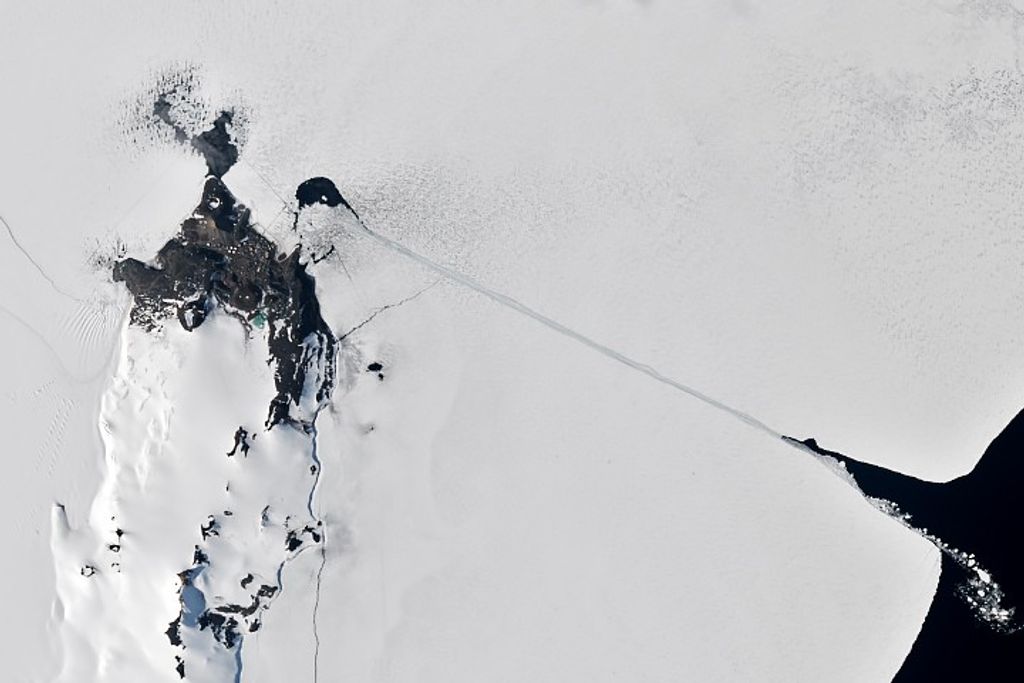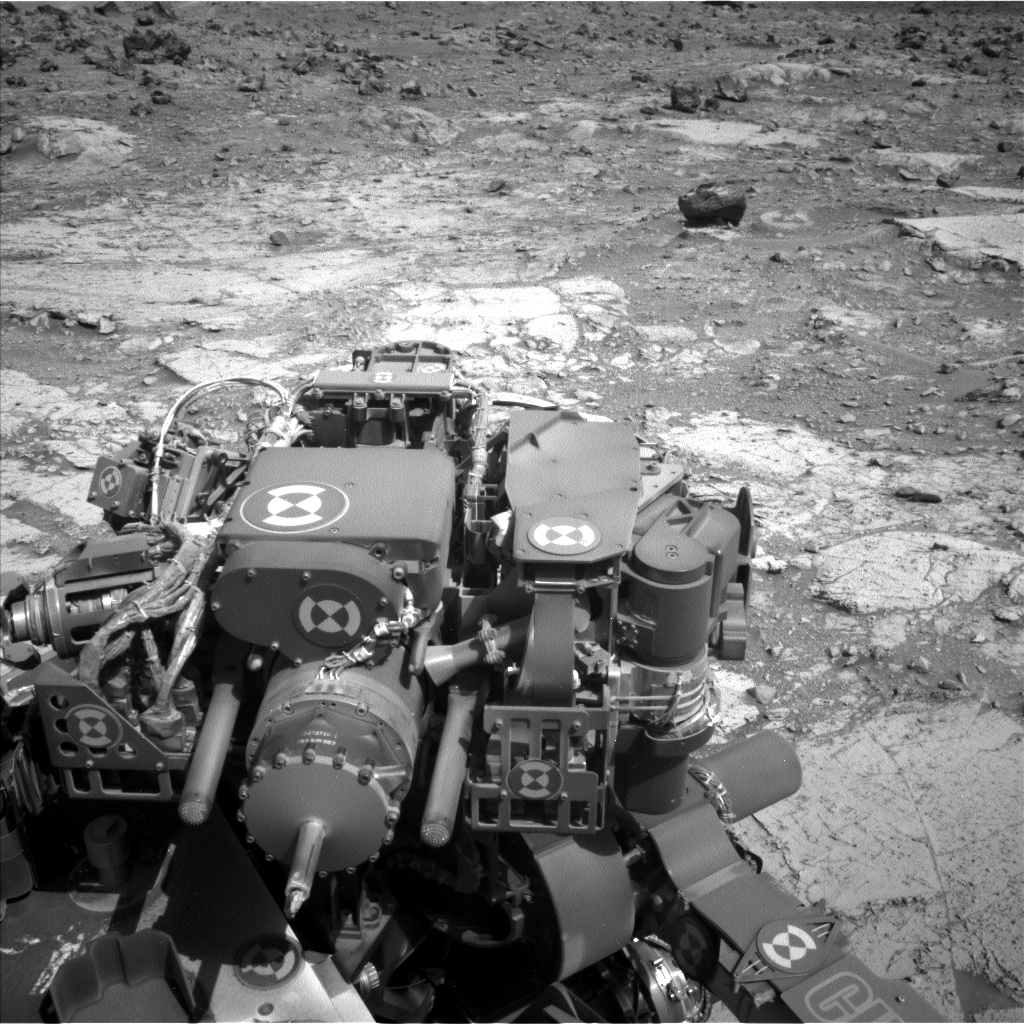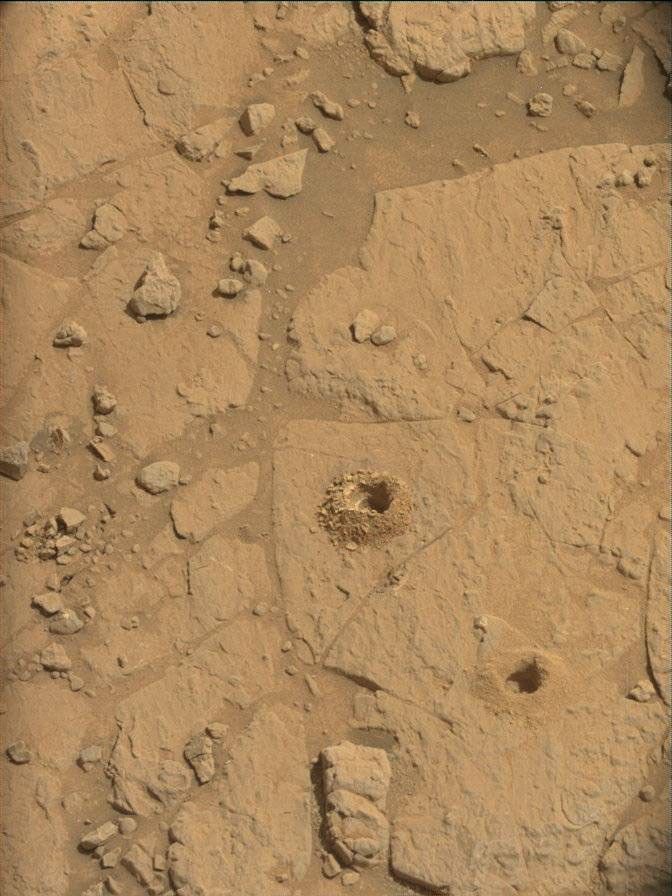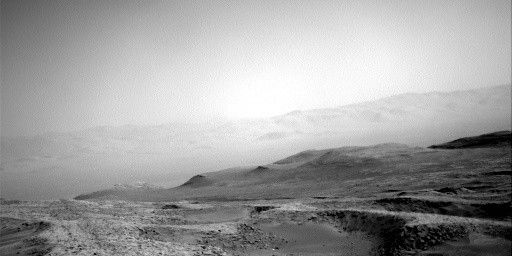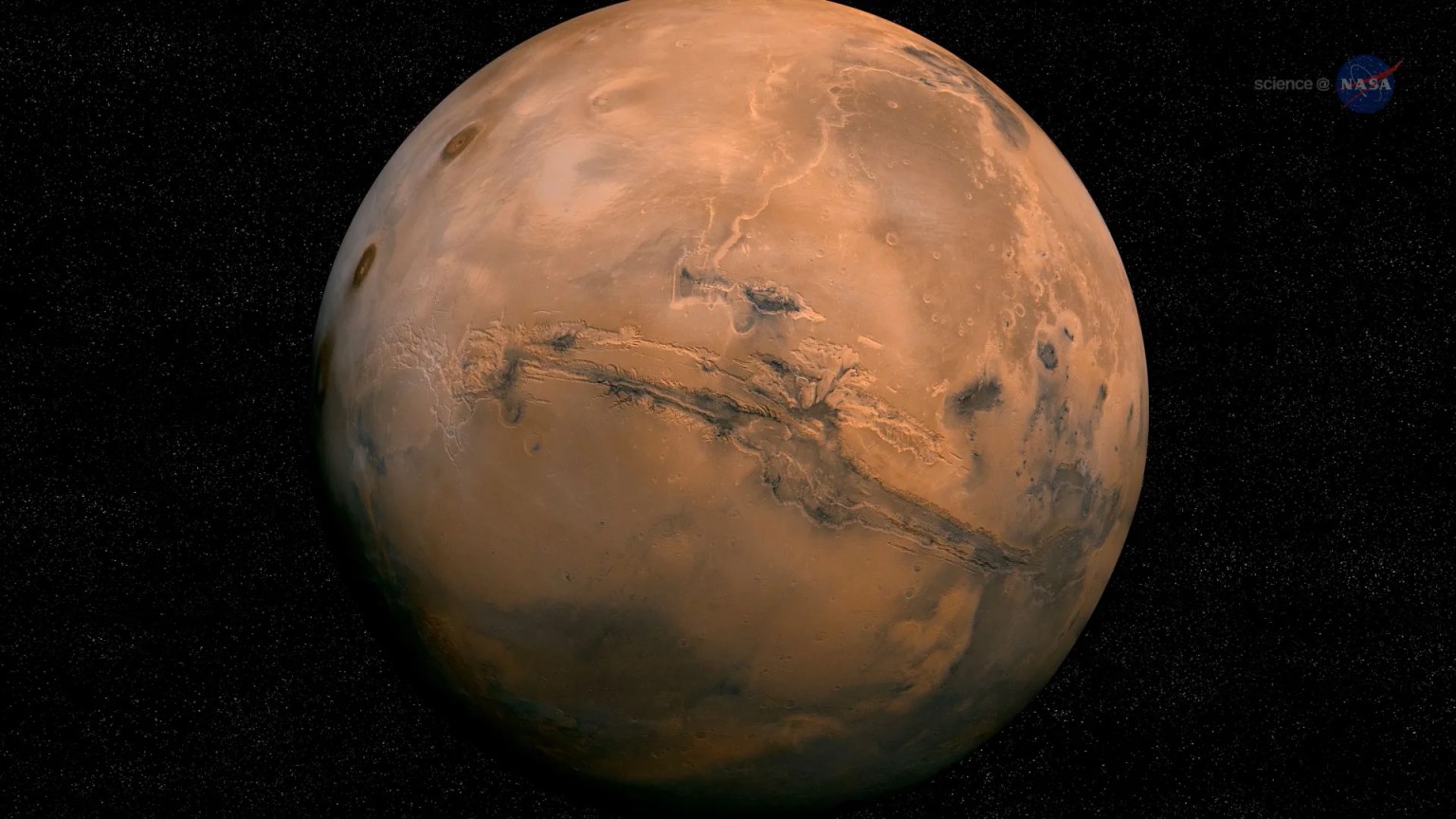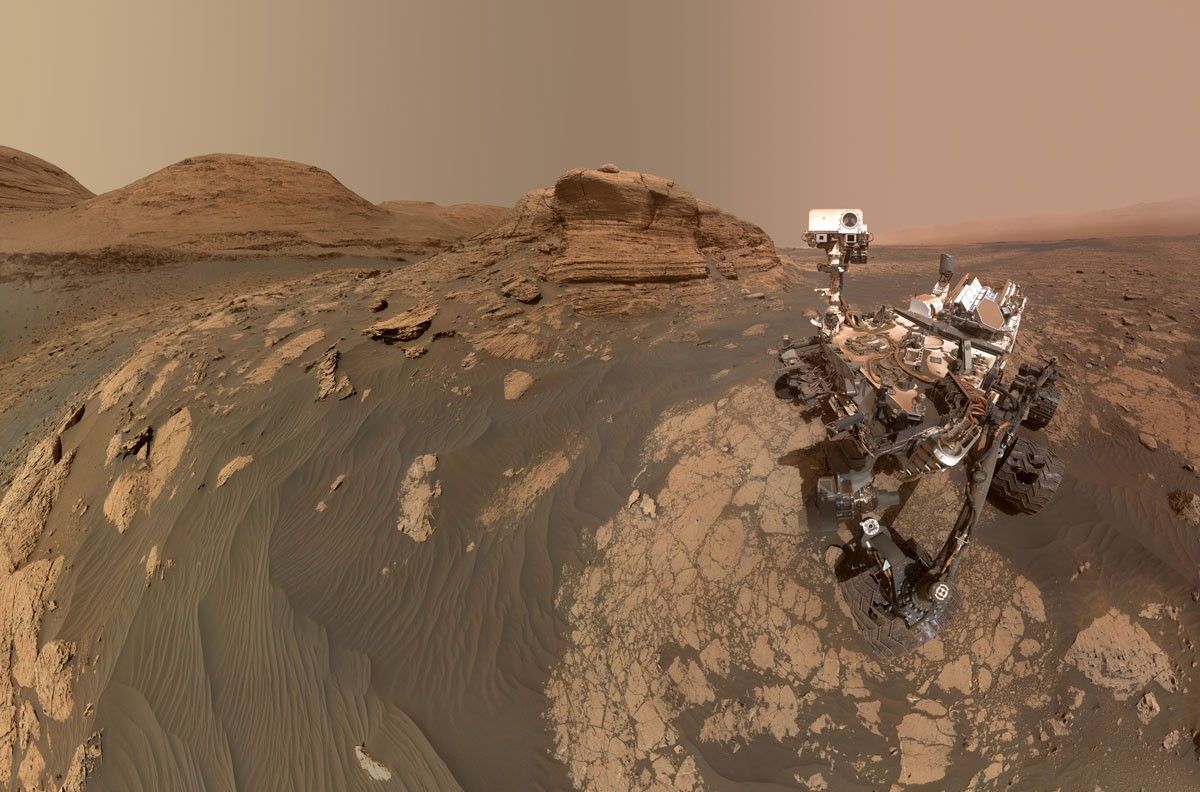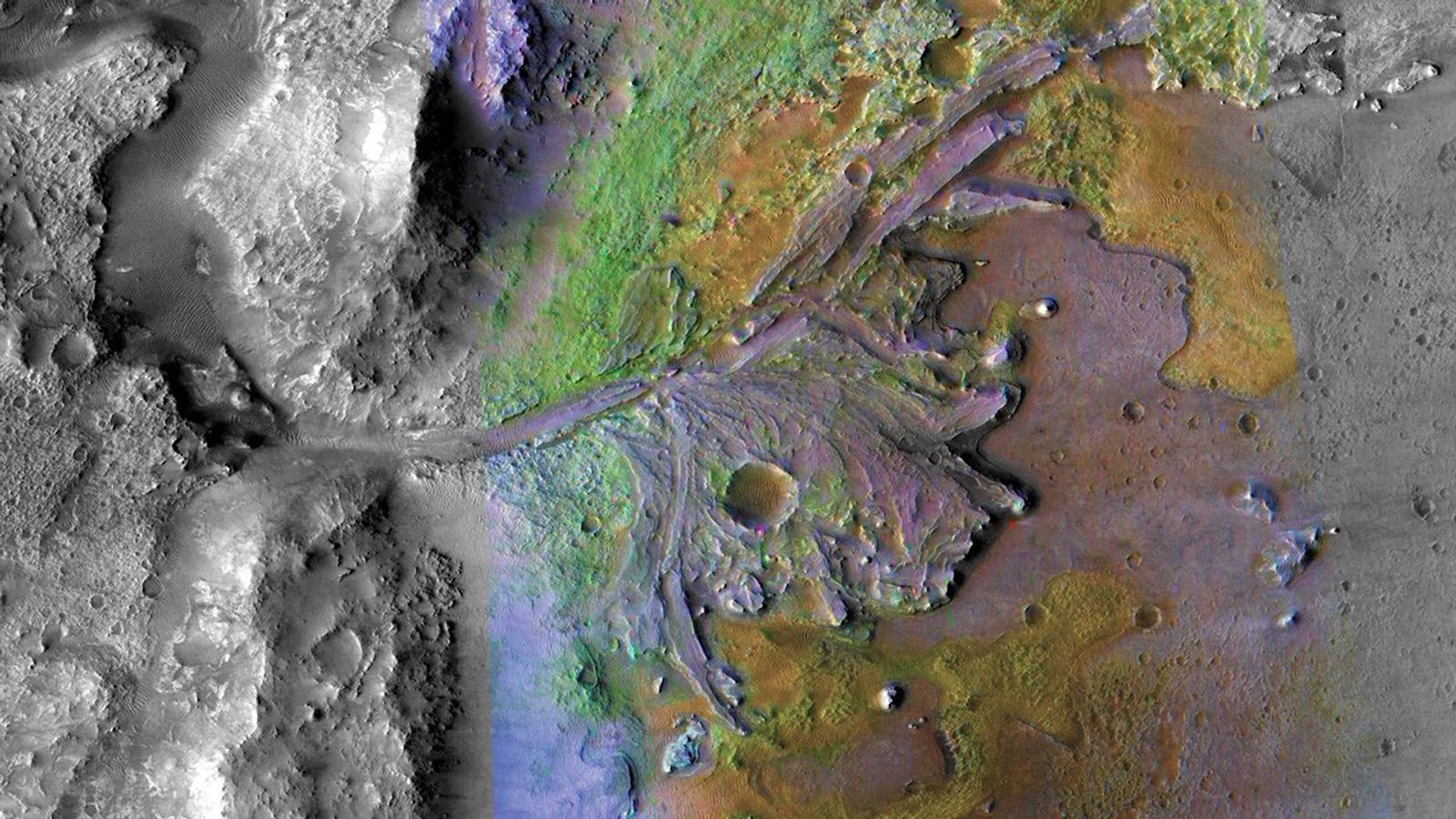Earth planning date: Wednesday, July 24, 2024
Happy Wednesday, terrestrials! We wrapped up our Mammoth Lakes drill campaign only three weeks ago and are already looking for our next drill site. This will be the last drill campaign in the Gediz Vallis region, an area on Mars the Curiosity team has had their eyes on since sol 0, just under 12 years ago! This upcoming campaign is even more exciting after the elemental sulfur we found at Mammoth Lakes. And while sulfur on its own doesn’t smell, I’ve always wondered… what does Mars smell like?
Finding ourselves less than a meter from our hopeful end-of-drive on Monday, we started on a very familiar plan: Starting with an arm backbone for removing dust and using APXS to investigate a bedrock target named “Russell Pass,” placing the arm out of the way for imaging, spending just over an hour on Mastcam imaging and ChemCam LIBS on Russell Pass, then one more arm backbone for MAHLI images of Russell Pass, and finally a drive in the afternoon. These plans, dubbed “touch-and-go” plans, are usually busy at the start and slow at the end. Our drive this time is planned to go ~10 meters almost perfectly east and leaving our heading almost perfectly west. If on Friday, our wheels are solidly on the Martian ground and there is a flat-enough bedrock surface to place our drill, we might be staying put for another two weeks while we try and collect another Gediz Vallis channel sample. And since we drive backwards with the arm taking up the rear, we might even have a workspace we’ve already driven over - hopefully exposing some internal bedrock even before drilling.
Written by Natalie Moore, Mission Operations Specialist at Malin Space Science Systems








